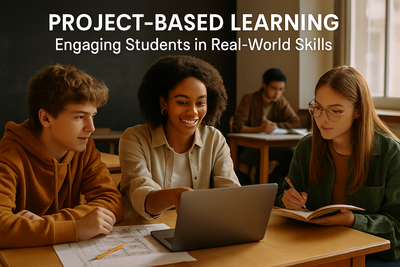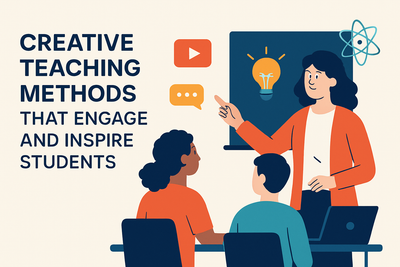The Power of Multilingual Education in a Globalized World
In today’s globalized world, the ability to communicate across languages has become more valuable than ever. As international collaboration, digital connectivity, and multicultural workplaces expand, multilingual education is no longer simply an academic advantage—it is a powerful tool that opens doors to opportunity, understanding, and global citizenship. Students who learn multiple languages gain cognitive, social, and professional benefits that prepare them to thrive in an interconnected world.
Cognitive Benefits: Strengthening the Brain Through Language Learning
Multilingual education enhances important mental abilities such as memory, problem-solving, and attention control. Research shows that learning a second or third language strengthens neural pathways, improving overall cognitive flexibility. Students who regularly switch between languages often develop sharper focus and better multitasking skills. These cognitive benefits extend into adulthood, supporting long-term brain health and even delaying age-related cognitive decline. In this sense, multilingual education is both an academic skill and a mental workout.
##Cultural Awareness and Global Understanding Language is more than vocabulary—it is a doorway into culture, identity, and shared human experience. Students who learn multiple languages gain firsthand exposure to diverse traditions, perspectives, and values. This increases empathy and promotes cross-cultural understanding. In a globalized world filled with collaboration and cultural exchange, these qualities are essential. Multilingual learners are better equipped to navigate international environments, build global friendships, and appreciate the richness of different societies.
##Career Opportunities in a Competitive Job Market The modern job market increasingly values candidates who can communicate across cultures. Multilingual individuals stand out in fields such as international business, diplomacy, technology, tourism, healthcare, and education. Companies operating globally rely on employees who can bridge language gaps and support diverse customer bases. Even domestically, multilingual workers are in high demand as communities become more culturally diverse. Learning multiple languages significantly expands career possibilities and often leads to higher earning potential.
##Improved Communication Skills and Confidence Learning a new language enhances overall communication skills—even in a learner’s first language. Students become more aware of grammar, structure, and expression, which strengthens their writing and speaking abilities across the board. Multilingual education also builds confidence. As learners master new phrases, sounds, and social cues, they become more comfortable engaging in unfamiliar environments. This confidence often carries over into public speaking, leadership, and academic performance.
Multilingualism in the Digital Age
Technology has made the world more connected than ever. Social media, global gaming communities, online learning platforms, and international business tools allow people to interact instantly across borders. Multilingual students can access global content, connect with peers worldwide, and participate in international opportunities that monolingual speakers may miss. In a digital world that celebrates connection, multilingual education becomes a powerful advantage.
Multilingual education empowers students to think broadly, communicate effectively, and thrive in a world where borders matter less than ever. By fostering cognitive strength, cultural understanding, professional opportunities, and global confidence, multilingualism prepares learners not just for school— but for life in a truly interconnected world.







